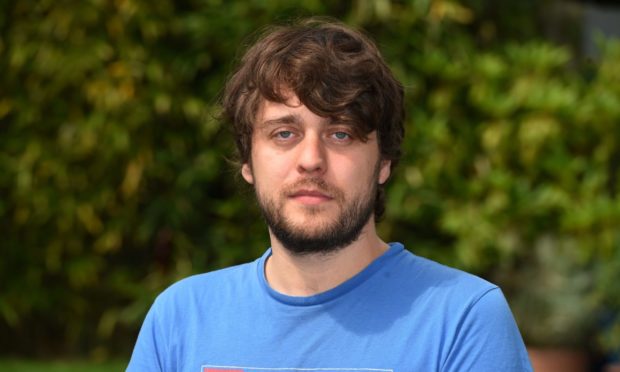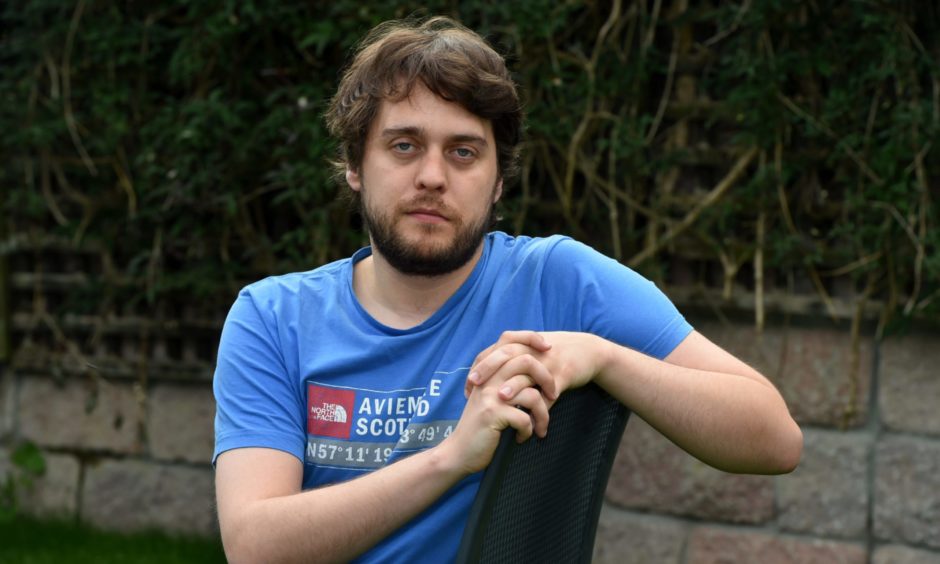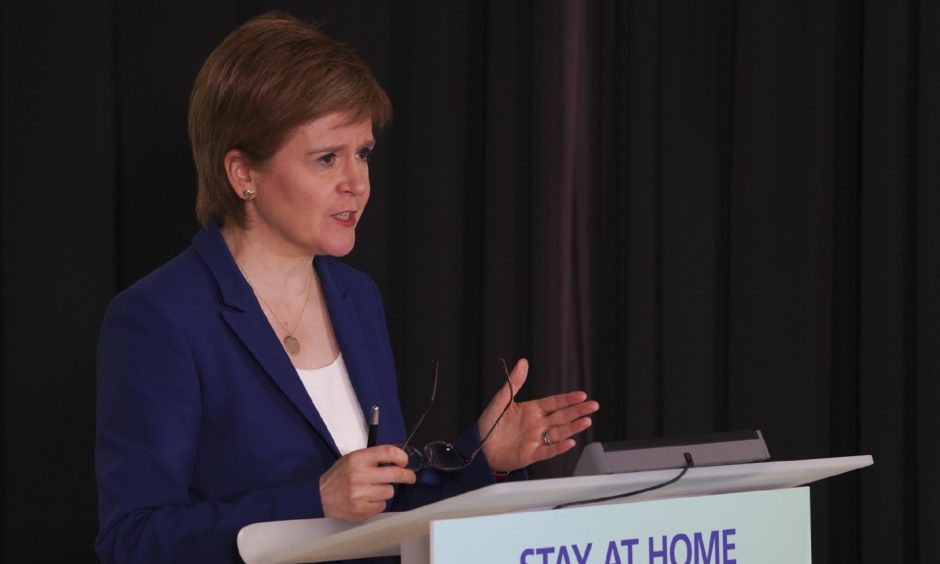People with long Covid in Scotland are being “robbed” of the opportunity to better understand their condition, says an Aberdeen man suffering the effects of the virus almost a year on.
Callum O’Dwyer became so ill with long Covid that he was forced to move back in with his parents and put his career on hold, after contracting the virus in March.
In response to our question to the first minister during Monday’s Covid-19 briefing, on setting up specialist long Covid clinics in Scotland, Nicola Sturgeon said that while she has not ruled this out, there is “not sufficient understanding” of the condition.
NHS England has provided £10 million to fund a network of clinics for those suffering from the long-term symptoms of coronavirus, with 69 operating across the country and taking referrals from GPs for people experiencing brain fog, depression, breathlessness, fatigue and other debilitating symptoms.
Mr O’Dwyer said the comments from Ms Sturgeon are “just not good enough” and “fall well short of what long Covid patients in Scotland would deserve”.
He added: “If I was living in England right now I would have been referred because I’ve got symptoms post 12 weeks of my initial infection, I would have been passed on to a specialist clinic; a one-stop shop, a multi-disciplinary clinic.
“I would have spoken to a long Covid specialist who either would have been full-time or spend most of their time speaking to long Covid patients and getting to understand their circumstances.
“I would have had access to all kinds of diagnostic tools that are not available to primary care.
“I would have had easier referrals to other departments and this is especially important because long Covid is a multi-system disease. It has neurological, cardiac, respiratory, gastro-intestinal.
“It runs the full gamut, it requires an all-hands-on-deck approach and, frankly, the approach that we have in Scotland at the moment is sub-standard.
“Long Covid people in Scotland are being robbed of an opportunity to further find out more ways in which things might be wrong with them.
“There’s no long-term support at the moment and there’s no rehabilitation available. All of those things actually are available as part of those long Covid clinics in England.”
The 29-year-old engineer first started feeling the effects of coronavirus on March 23 – the first day of a nationwide lockdown to curb the spread of the virus.
Over the next fortnight he experienced a range of “typical” Covid symptoms – a fever, a persistent cough, difficulty breathing and constant nausea.
At one point, he was so frail he was unable to pick up a one-litre water bottle – weighing a little over 2lb – to drink from.
Previously fit and active, Mr O’Dwyer was “barely able” to climb the stairs to his parents house in Westhill, where he moved to get support.
To this day he is still plagued by symptoms including fatigue, stomach pains and digestive issues, and in January his breathlessness “came back with a vengeance”.
Speaking on Monday, the first minister said long Covid is an issue of “significant concern” and she did not rule out the creation of dedicated clinics in the future.
The Scottish Government has funded a number of research projects into the characteristics of long Covid and some of the conditions that sufferers go on to experience.
However, Ms Sturgeon said there is “not sufficient understanding” of the condition because it has not been around long enough, and “therefore what specialisms are needed to properly treat it and that’s why that research is so important”.
‘Just isn’t good enough’
Scotland’s chief nursing officer, Fiona McQueen, also tackled the issue during Monday’s Covid-19 briefing.
She said she was “in no way diminishing the severity of how people feel but, to be encouraging to people, most people with long Covid do recover”.
However, Mr O’Dwyer, who is still on the waiting list for a heart scan after he started experiencing heart issues in August, said to be told by the first minister to “just sit and wait for the research to come through just isn’t good enough”.
He also questioned the assertion that most people with long Covid have recovered since there is not a single collated list for those suffering from the condition and sufferers will not necessarily present to a GP.
He added: “We can find out so much more and actually bolster the research that they’re trying to undertake by having these specialist clinics, by having these patients on the books.”
“The feeling among people with long Covid is there’s a sense they’ve not been given the full slice of the pie that they deserve.
“There is a really robust clinic model in England. This is a choice Nicola Sturgeon and Jeane Freeman are making, to not proceed with this.
“They’re choosing for this not to happen and therefore making our recoveries more difficult.”
‘We take this issue very seriously’
A Scottish Government spokeswoman said the Chief Scientist Office has funded nine “extensive research projects” on long Covid through £2.5m of funding, in addition to £5m awarded to 15 Scottish research institutions to “better understand the effects of infection”.
She added: “We take this issue very seriously, and recognise the impact long Covid is having on the physical and mental wellbeing of people in Scotland.
“NHS Scotland is delivering care tailored to the individual needs of people experiencing the long-term effects of Covid-19.
“Our ambition is for people to have access to the support they need for assessment, diagnosis, care and rehabilitation in a setting that is as close to their home as possible.
“We are working to enhance and better co-ordinate existing pathways from primary, community care and third sector services, to provide the multidisciplinary and person-centred support that people will require.”


